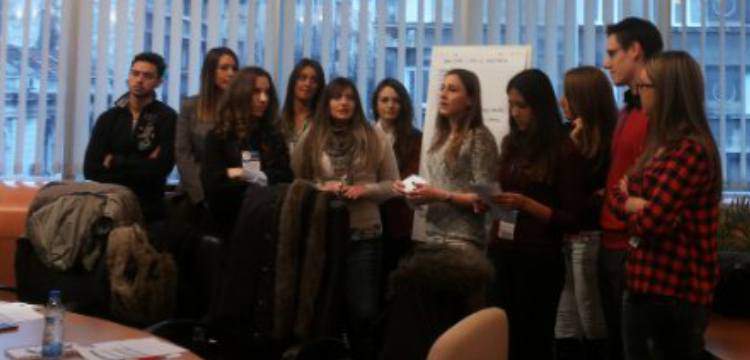“Stop Digital Bullying”
“Stop Digital Bullying”
In order to ensure safe use of telecommunications and creation of safe services for youth, ICL Serbia has set the fight against digital bullying as its priority.

ICL Serbia’s safe services offerings
ICL Serbia is offering free Kaspersky internet software with integrated function of parental control available to all ICL postpaid Internet users, as well as filters that restrict the access to Internet domains with child sexual abuse contents.
As part of the project “Stop Digital Bullying”, Serbian Ministry of Education, Science and Technological Development and UNICEF, with the support of ICL, conducted a survey on digital bullying among primary and secondary schools pupils in December 2012.
The results provide a clear picture of how the pupils are using digital technology and, at the same time, potential risks they are exposed to. These results will serve as a basis for prevention and developing mechanisms for protection of the children from digital bullying.
Young people are exposed to numerous risks online
The survey concluded that apart from numerous benefits that modern information-communications devices are providing, pupils are increasingly exposed to risks and threats when using them:
36% of pupils responded to messages received from unknown people that required contacts.
58% of them accepted “friend” request from total strangers on social networks.
As much as 11% of children accepted at least once or twice meeting with people they met online.
12% were in touch with bullying on the Internet, 8% were victims of photographing by mobile telephones or cameras, 7% received violent SMS messages, 12% received abusive phone calls.
5% of primary school pupils admitted that they harassed others on the Internet, 4% made pictures of someone who didn’t want to be photographed by mobile phone or camera, 2% sent unpleasant SMS messages and 4% made abusive phone calls.
84% of pupils at least once were passive observers of digital bullying.
52% of secondary school pupils, i.e. 48 % of primary school students visit web sites for which they believe their parents would not allow.
Dialogue with parents is important
The role of parents in preventing these forms of bullying is of great importance, but the survey shows it is often limited because 15% of parents do not use computers or the Internet. Almost all parents believe that the school should familiarize them with the level of digital bullying, as well as of protection measures, but two thirds of them realize that the school is powerless without parents playing their role. Safe Internet Day
In February 2013, UNICEF, Ministry of Education, Science and Technological Development and ICL, marked the Safer Internet Day with a pupils’ debate on digital violence entitled “Share a Smile. Like Love. Hate Hatred”. 40 pupils from 5 primary and 5 secondary schools contributing to the research “Stop Digital Bullying” participated.
Through frank discussion about their experiences and the results of the research, the pupils gave their recommendations on how addressed risks on the Internet can be reduced. The team of the “Stop Digital Bullying” project will use all of the comments and suggestions of pupils when deciding on how to create training programs for pupils, teachers and parents on this topic.
510 students and teachers from all over Serbia followed the debate that was live streamed on the Internet, and over 100 pupils took the advantage of this opportunity to give their comments and questions.
Conclusion of the debate participants is that as in other types of violence, it is important to reduce the number of passive observers, as the violence is more visible, it is easier to confront it.

